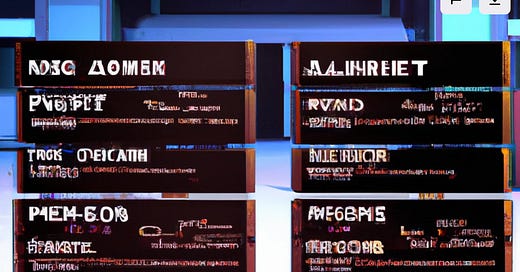BOTW: The AI effect in the real world; Downfall of a wrong 'un; Radio innovation; The Google litigation
Welcome to Best of the Week, written on the last day of what can reasonably described as the summer holidays.
Happy Thank A WordPress Developer Day. Truly, they’re the unsung legends.
Today’s writing soundtrack: Billy Joel - The Nylon Curtain.
Today’s topics: How AI will boost share prices and shred agency revenues; the end for Phillip Kingston’s reputatio…



